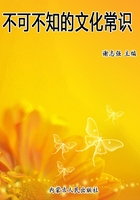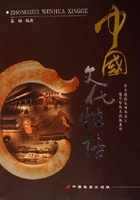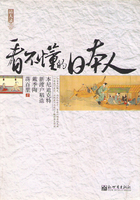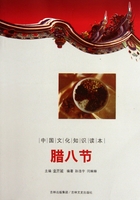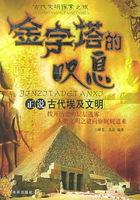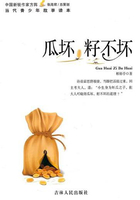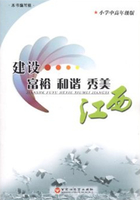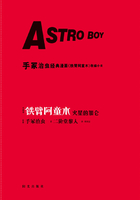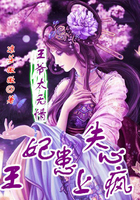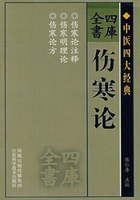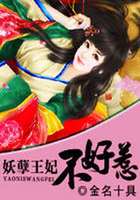According to his biography Paramārtha was from Ujjayanī, a country in West India. He first arrived in Funan, thereafter was invited to China. In China he translated a number of Buddhist texts so become one of most prominent translators in Chinese Buddhist translation history. Though we do not know how long Paramārtha stayed in Funan before he came to China, his visits to that country, and Mandra and Samghapāla as well, all show that Funan was under very strong influence of Buddhism, particularly Mahāyāna Buddhism, at that time. Similar examples we know of are in other places like Kucha and Khotan on the socalled Silk Road in Central Asia.
In Chinese literature Funan is also called Banan. In the book Naihai Jigui Neifa Zhuan by the wellknown Tang Buddhist pilgrim monk Yijing, we find a great deal of information about geographic and religious situation in the South Sea area.
Starting from Nālanda (in India), until the distance as one travels five hundreds yojanas,the whole area is called Eastern Frontier. At the farthest place, there is a mountain called Great Black Mountain, which is estimated to be on the southern boundary of Tibet. It is said that if one travels from the southwest of Sichuan, after about one month, he can arrive at this mountain. Further to the south, there is the sea coast where there is a country called s' rīksetra. To the southeast of this is the country of Langjiashu. To the east of this is the country of Dvārapatī. At the extreme east is the country of Linyi. The people of these countries greatly reverence the Three Jewels. Many of them hold firmly to the precepts of vinaya. The way of dhūta, that is begging, is a custom (for Buddhists monks) in these countries.
And on the geographic situation, Yijing says more:
Counting from the west there are the Island of Polusi and the Island of Maluoyu, which are now the country of Srīvijaya, then the Island of Mohexin, the Island of Heling, the Island of Dada, the Island of Penpen, the Island of Poli, the Island of Juelun, the Island of Foshibuluo, the Island of Ashan and the Island of Mojiaman. There are some more small islands which can not be all mentioned here.
And more on Buddhism:
In all these countries Buddhism is followed by people and most of the Buddhists are of Hīnayāna except in Maluoyou where there are a few belonging to Mahāyāna. Among these countries some are of about a hundred Chinese lis round, some are several hundred in circuit, or some measure about a hundred yojanas. Though it is difficult to calculate distance on the great ocean, yet those who travel in merchant ships know the approximate distance of these countries. Because the people of Juelun first visited Jiaozhou and Guangzhou they were generally called by the name of “Country of Kunlun”. Only these people of Kunlun have curly hair and have black skin, the other countries are not different from China. It is their habit to have their legs bare and to wear ganman (a cloth). These things have been fully described in the Nanhai Lu (The Accounts of the Southern Sea). Setting out from Huanzhou, right to the south, one will reach Bijing after a journey of rather more than half a month on foot, if he sets aboard ship it takes five or six days. If one arrives at Champa in the south, that means he arrives at the country of Linyi. In this country most of Buddhists belong to the Sammitīyanikāya, and a few belong to the Sarvāstivādanikāya. Setting out southwestwards, in a month, one reaches Banan, which formerly was called Funan. At first the people of the country lived naked and worshiped the devas (gods). Later on, Buddhism started to flourish there. However, now a wicked king has expelled and exterminated Buddhists and there are no Buddhist monks left at all. The adherents of tīrthaka (heretics) live intermingled. This area is the south corner of Jambudvīpa, not the islands at the sea.
What Yijing describes is the situation he knew in the early time of Tang, about a hundred and thirty years later than the time of Liang. While the geographic condition was not of much difference from earlier times, the situation of Buddhism in Funan had changed a lot. That is, at about the middle of the seventh century the newly established Zhenla (Chenla) conquered and substituted Funan as a new MonKhmer country in Cambodia. The new king of Zhenla appears to have been not friendly to Buddhism and suppressed it. Yijings reports just reflect this historical fact.
References:
Annen, Xitan Zang (The Siddham ·-Pit ·aka), Taisho Tripitaka, No. 2702, 安然,《悉昙藏》
G. Coedès, The Indianized States of Southeast Asia, Canberra: Australian National University Press, 1975
Daoxuan, Xu Gaoseng Zhuan (The Continuous Biographies of the Prominent Monks), Taisho Tripitaka, No. 2060, 道宣,《续高僧传》
Daoxuan, Datang Neidian Lu (The Buddhist Text Catalogue of the Great Tang), Taisho Tripitaka, No. 2149, 道宣,《大唐内典录》
Fei Changfang, Lidai Sanbao Ji (The Three Jewelries in History), Taisho Tripitaka, No. 2154, 费长房,《历代三宝记》
Huijiao, Gaoseng Zhuan (The Biographies of the Prominent Monks), Taisho Tripitaka, No. 2059, 慧皎《高僧传》
Jingmai, Gujin Yijing Tuji (The Pictures and Records of Texts Translation in Ancient and Today), Taisho Tripitaka, No. 2151, 靜迈,《古今译经图记》
Kathāsaritsāgara, Sanskrit version in Devanagari scripts, Delhi: Motilal Banarsidass, 1977
B. Liebich, Zur Einfuerung in die indische einheimische Sprachwissenschaft, I. Das Kātantra, Heidelberg, 1919
Liu Xu, Jiu Tangshu (The Old History of Tang Dynasty), Zhonghua edition, 刘昫,《旧唐书》
Yao Silian, Liangshu, (The History of Liang Dynasty, Zhonghua edition, 姚思廉,《梁书》
Jao TsungI, “Shuo Funan Hushu” (On the Hu scripts of Funan), in his Fanxue Ji (Papers on SinoIndian Studies), Shanghai Classics Press, 1993, pp. 175-177, 饶宗颐,“说扶南胡书”,《梵学集》
H. Scharfe: Grammatical Literature, A History of Indian Literature, ed. by J. Gonda, Vol. V, Fasc.2, Wiesbaden: Otto Harrassowitz, 1977
Tāranātha, rGya gar chos ‘byung, History of Indian Buddhism, English translation of by Lama Chimpa and Alaka Chattopadhyaya, Calcutta: K P Bagchi

